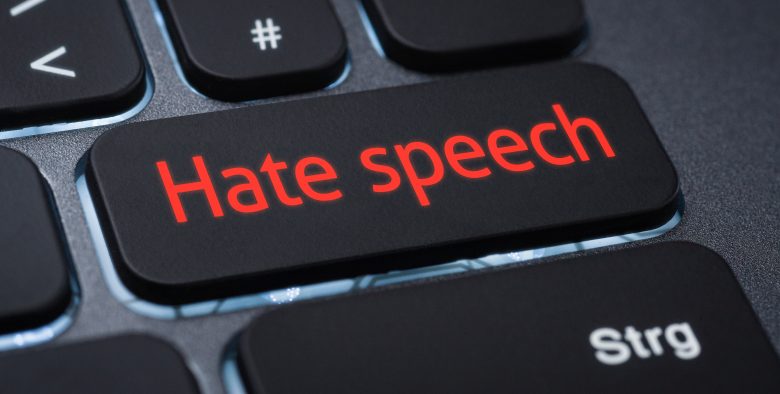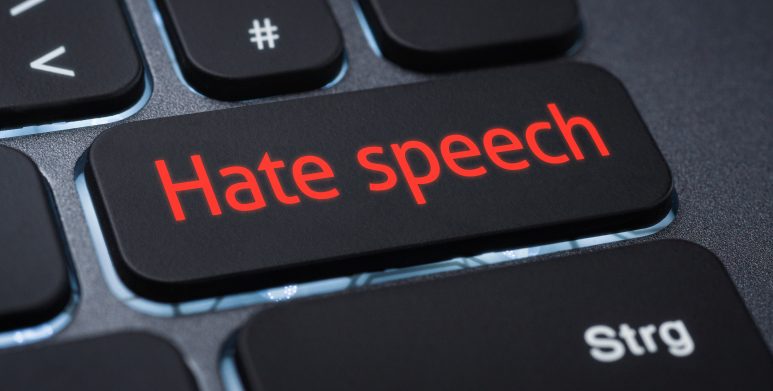By Hana Kojakovic, MDI Project Manager
The Get the Trolls Out! Project was founded a decade ago with one important mission: to counter and tackle hate, disinformation and religious based discrimination both in online and offline media space. But in a climate of shrinking NGO funding and rising geopolitical tensions, the question remains: do we need such projects now more than ever – and if so, what role do they play in the fight against hate?
Throughout the past ten years, we have observed how certain narratives and biases repeatedly resurface, often repackaged in new forms through memes, cartoons, and clickbait headlines, and amplified through algorithms and online engagement. One thing has remained clear: global events consistently shape the narratives we see in the media.

Time and again, moments of crisis have sparked surges in hate and misinformation — and exposed just how much education at all levels of society is needed. From the antisemitic tropes linked to COVID-19 and Europe’s anti-vax movements, to the spread of QAnon conspiracy theories, and most recently, the events of 7 October, each has unleashed new waves of antisemitism and Islamophobia across the European media landscape.
Since 7 October, the Get the Trolls Out! team has recorded a worrying rise in anti-religious hate speech across Europe. As geopolitical tensions escalate, we have witnessed increasing polarisation and a shrinking space for interreligious dialogue. On social media, divisive narratives continue to deepen the divide, forcing people into rigid “pro” or “anti” camps and eroding space for nuance and shared understanding. Indeed, various findings by other likeminded organisation has aligned with GTTOs monitoring efforts.
CST (Community Security Trust) recorded “3,528 antisemitic incidents in the UK in 2024, the second-highest total ever reported to CST in a single calendar year”. According to their data, “the three highest annual totals of antisemitic incidents, recorded in 2023, 2024 and 2021 respectively, have all been driven by anti-Jewish reactions to conflict in the Middle East”. Furthermore, according to the European Union Agency for Fundamental Rights, “Jewish people have experienced more antisemitic incidents since 2023 with some organisations reporting an increase of more than 400 per cent”.
In the UK, Tell Mama, established in 2012 to report instances of anti-Muslim hate, recorded the highest level of Islamophobic incidents in 2024. Almost 6,000 cases were confirmed by the organisation as anti-Muslim incidents more than doubled in comparison to two years before. Their research indicated that men were more often the targets of such hate in comparison to women for the first time since the organisation was established.
Another report published by CLAIM, which works across Europe and fights Islamophobia in Germany, showed a 60 per cent increase in attacks and discrimination during 2023-2024, since October 7th. It’s important to remember that these numbers only scratch the surface and often do not capture the various incidents which occur daily against Jewish and Muslim individuals across Europe that go unreported.
At a time when Islamophobia and antisemitism are surging across Europe at an alarming pace, the role of civil society and national institutions is more crucial than ever. Yet, over the past few months, we’ve witnessed the exact opposite: rather than building stronger alliances and support networks for Jewish and Muslim communities, funding for these vital projects is being cut at a worrying speed. This year alone, we have seen the Trump administration announce the elimination 90p er cent of foreign aid contracts and foreign aid cuts of ‘60 billion dollars in overall US assistance around the world’ from the US Agency for International Development. We can see a new threat posed to civil society with the shrinking of the aid landscape that risks putting vulnerable members of society on the front line, unarmed.
The question stands: will these funding cuts accelerate the spread of unchecked hate speech online, allowing it to go undetected and unchallenged — or will they pass unnoticed?
Over the past decade we have seen Get the Trolls Out! and likeminded projects play a vital role in encouraging youth to fight against online hate whilst playing a pivotal role in educating individuals and media professionals of the harm of discriminatory narratives and conspiracy theories. From exposing online disinformation and fake news to promoting interreligious dialogue and educating individuals on harmful tropes, to training of journalists, the project has helped to bridge communities and build resistance against online hate.
But as antisemitism and Islamophobia are on the rise once again across Europe – these efforts and actions need to be sustained and further upheld. With the threats of funding cuts and the growing instability in the NGO sector, the shrinking civil space is becoming exposed. The need for united forces and alliances offering a space for interreligious dialogue and a safe space for marginalised communities is vital. GTTO may be ten years in, but the work is far from over. We need solidarity and unity in the fight against hate – a fight that concerns us all.

